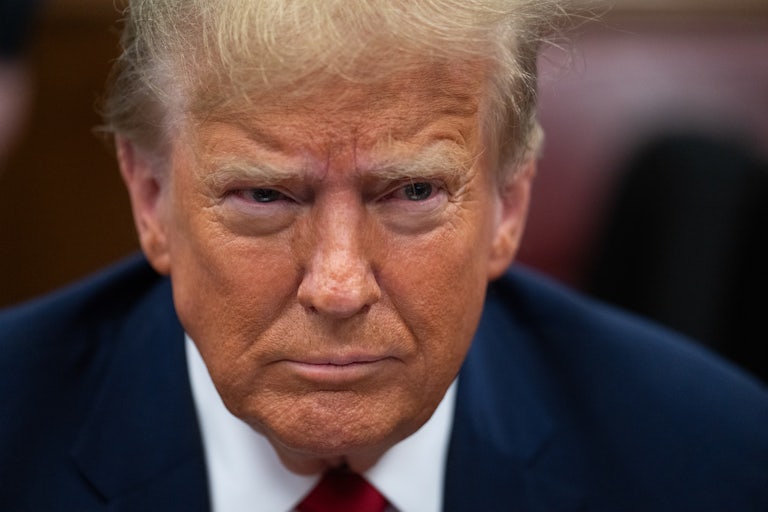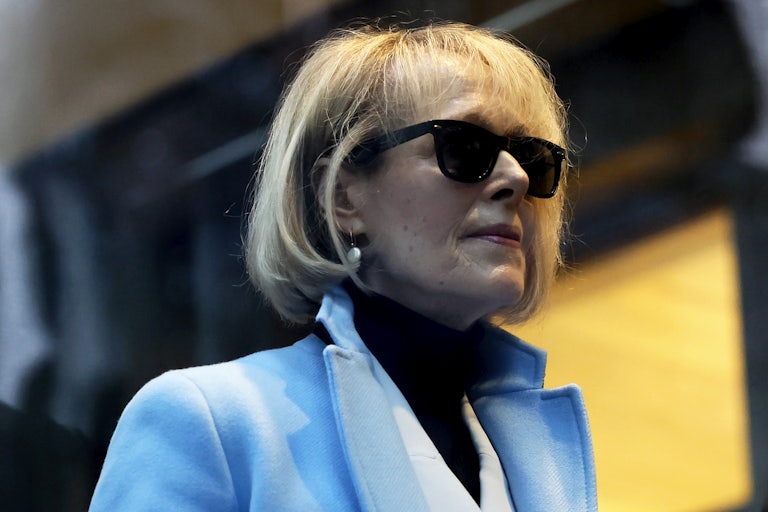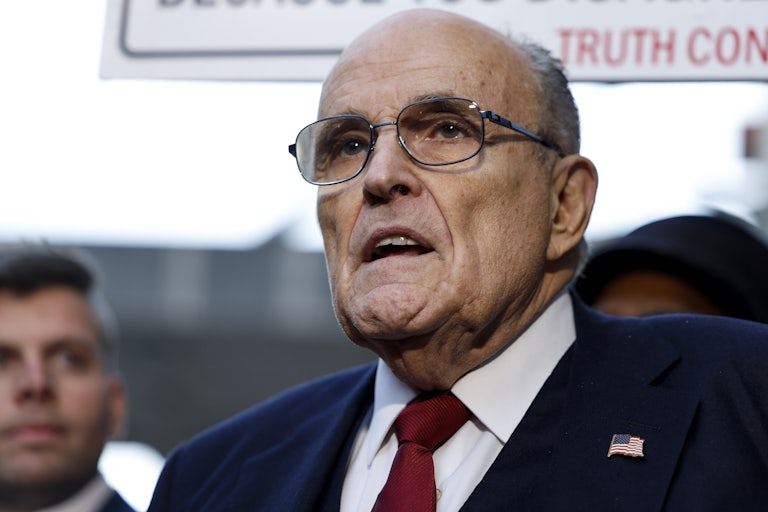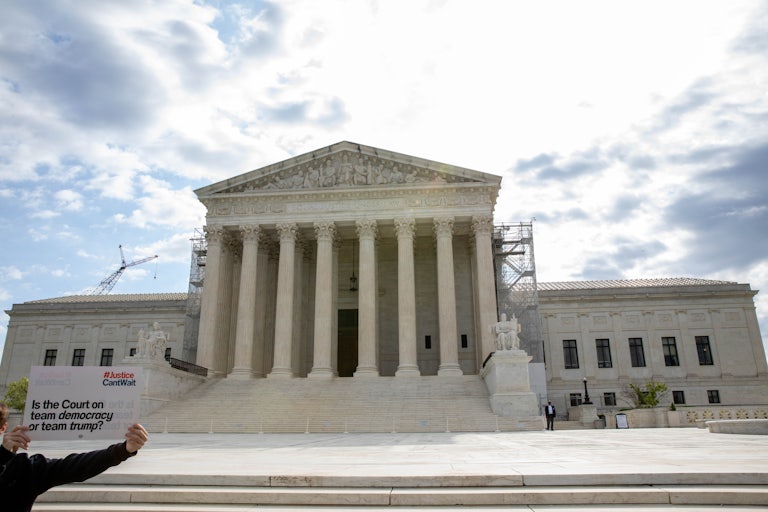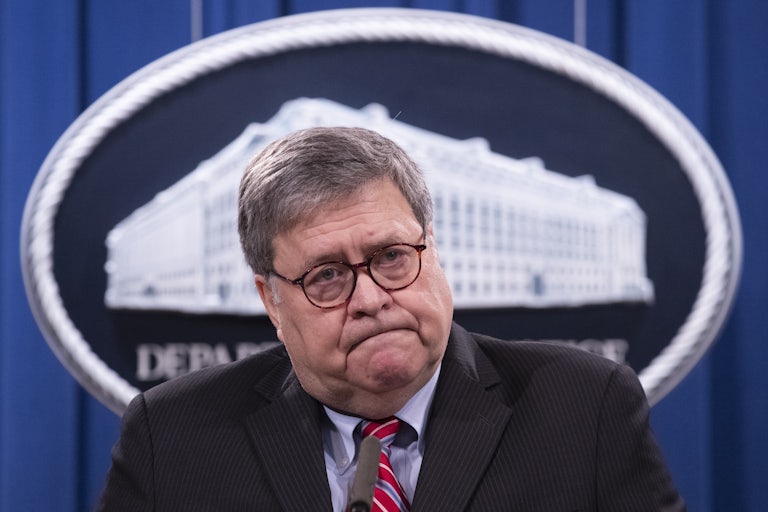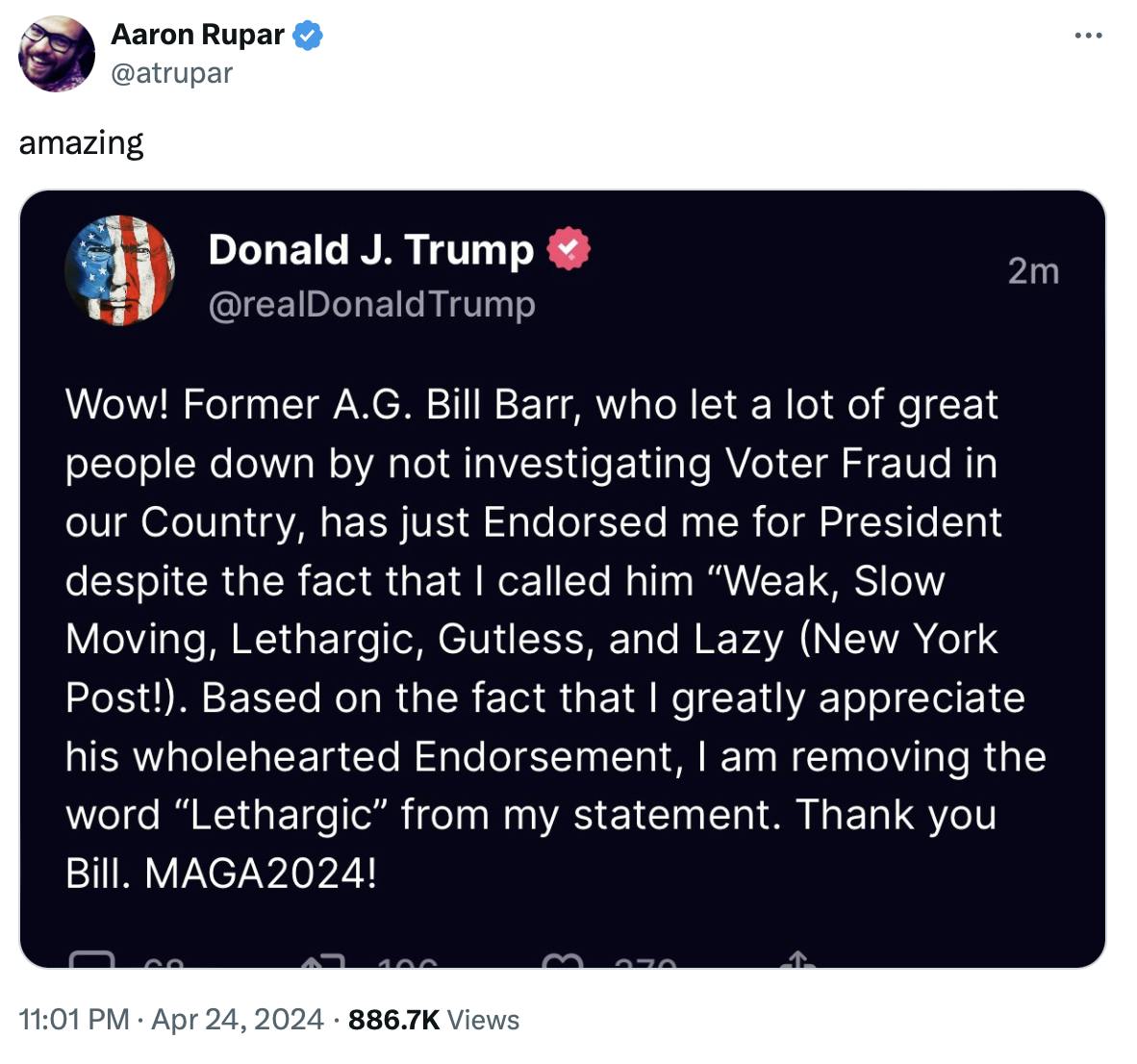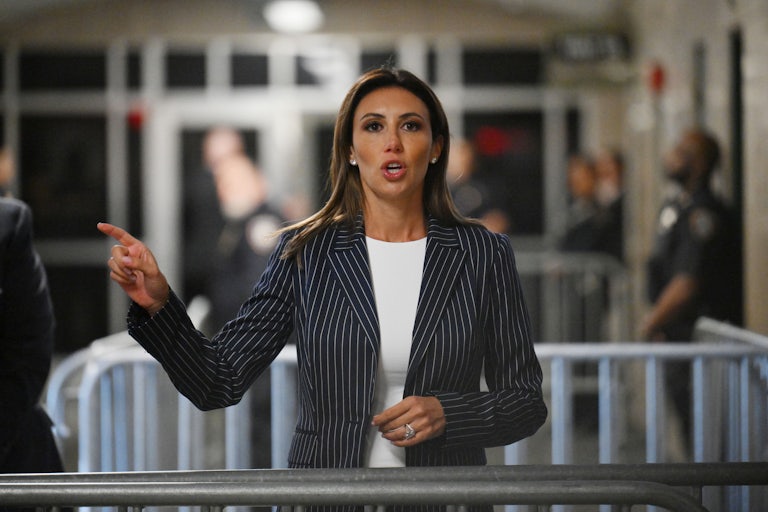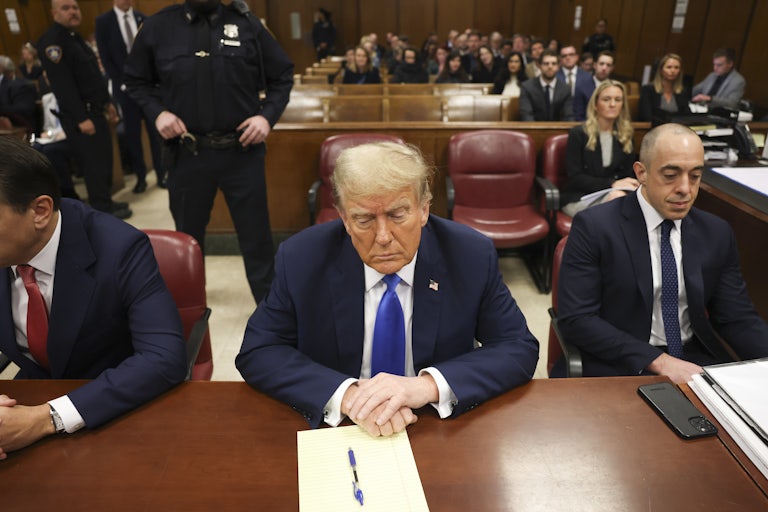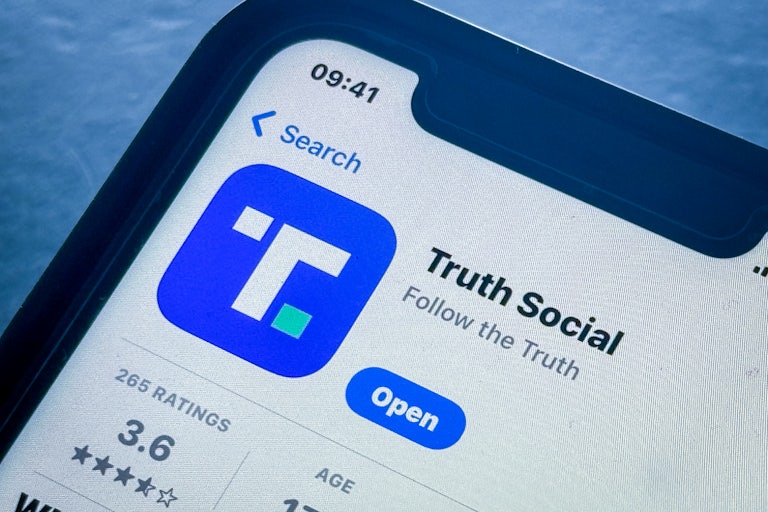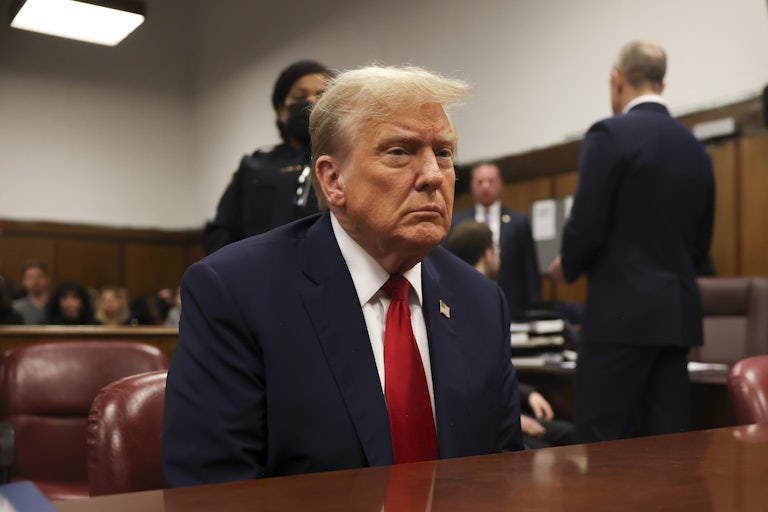Judge Skewers “Oblivious” Weinstein Ruling with Chilling Warning
Judge Madeline Singas said sexual predators will benefit from the decision.
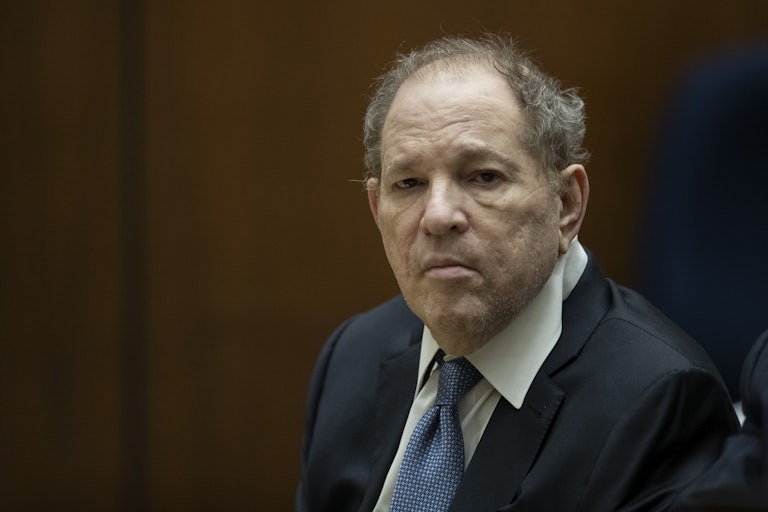
Disgraced Hollywood producer and serial abuser Harvey Weinstein had his 2020 rape conviction overturned by a New York appeals court on Thursday, but not everyone on the bench agreed with the decision.
In a scathing dissenting opinion, Judge Madeline Singas wrote that the court appeared “oblivious to, or unconcerned with, the distressing implications” of the ruling.
“Men who serially sexually exploit their power over women—especially the most vulnerable groups in society—will reap the benefit of today’s decision,” Singas wrote. “Under the majority’s logic, instances in which a trafficker repeatedly leverages workers’ undocumented status to coerce them into sex, or a restaurant manager withholds tips from his employees unless they perform sexual acts becomes a series of individual ‘credibility contests’ and unrelated ‘misunderstandings.”
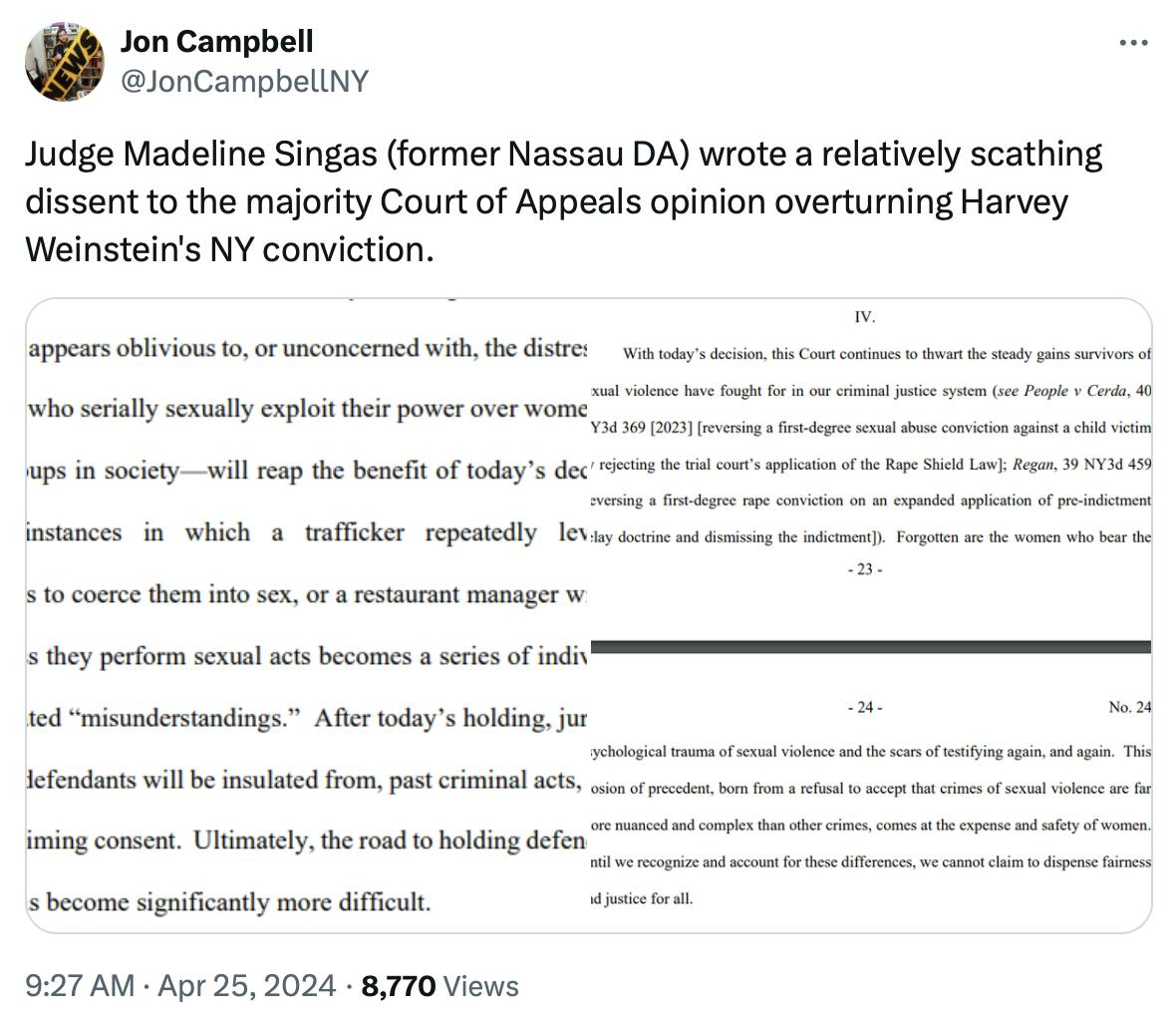
Accusations against Weinstein spurred the #MeToo movement into virality in 2017, helping women around the world have their sexual violence accusations be taken more seriously. Dozens of women in the film industry accused Weinstein of more than 100 instances of sexual harassment, abuse, and rape since 1980, but he was convicted on just one charge of rape in the third degree and a criminal sexual act in a landmark decision in February 2020.
The Appeal Court’s 4-3 decision claimed that the inclusion of evidence and testimony from women whose experiences were not a part of the charges filed against Weinstein had been a critical error in the original trial.
“We conclude that the trial court erroneously admitted testimony of uncharged, alleged prior sexual acts against persons other than the complainants of the underlying crimes because that testimony served no material non-propensity purpose,” wrote Judge Jenny Rivera in her opinion.
Rivera described the errors as “egregious” and said the only solution would be to retry Weinstein, which would involve calling his victims to testify again.
Weinstein is expected to be transferred to a California prison to ride out the remainder of his 16-year sentence for another case in which he was convicted of one count of rape and two counts of sexual assault. However, Weinstein will appeal that conviction on May 20, according to his attorney, Jennifer Bonjean, who spoke with The New York Times. Bonjean expects that Thursday’s ruling will bode well for his appeal in the Los Angeles case.
